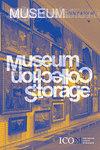遥远但团结:意大利和巴西生态博物馆的合作宪章
IF 0.4
4区 艺术学
0 ART
引用次数: 1
摘要
摘要2020年,巴西和意大利是受新冠肺炎疫情影响最严重的国家之一。这种情况突出了社会和经济层面潜在的结构性危机,并引发了对未来的广泛关注。在这一背景下,生态博物馆和社区博物馆继续履行其使命,即关心和解读活的文化遗产,赋予社区可持续管理遗产的权力,从而为当地的整体发展和加强共同的社会意识和身份做出贡献。旨在遏制疫情的措施促使电子博物馆探索公众参与、激励和支持的新方法,以满足当地社区的需求。巴西生态博物馆和社区博物馆协会(ABLEMC)和意大利生态博物馆网络(EMI)讨论并批准了“遥远但团结”的合作章程。意大利和巴西的生态博物馆和社区博物馆在几次会议上,反思了博物馆在危机时期的责任。该宪章确定了签署国对执行明确的合作方案的十年承诺,并确定了促进行动的年度日历。它列出了商定的主题和战略路线(交流、欢迎、出版、培训、邀请、组织、沟通和监测),以及实施时间和在双方行为者参与下要采取的行动。该宪章强调了生态博物馆和社区博物馆在促进博物馆实践和向创建有韧性的社区过渡方面的作用,支持它们实现自我更新的目标,并以有效和可持续的方式应对当代危机。本文介绍了宪章的主要主题和目标,并提出了一个理论模型,用于理解支持社区及其“社会想象力”对促进社区的整体发展和社会创新至关重要。它首先通过借鉴一些重要的理论模型来讨论克服当代危机所必需的变革;然后转而研究意大利和巴西的生态博物馆如何应对新冠肺炎疫情带来的限制。接下来,它介绍了疫情期间发展起来的一些电子博物馆实践,说明了宪章的方法和内容,最后,介绍了合作经验的主要成果、局限性和发展前景。本文章由计算机程序翻译,如有差异,请以英文原文为准。
Distant but United: A Cooperation Charter between Ecomuseums of Italy and Brazil
Abstract In 2020, Brazil and Italy were among the countries most adversely affected by the Covid-19 pandemic. The situation highlighted latent structural crises at social and economic levels and prompted widespread concern for the future. Operating in this context, ecomuseums and community museums continued their mission of caring for and interpreting living cultural heritage, empowering communities to sustainably manage heritage and thus contributing to integral local development and the strengthening of a shared social consciousness and identity. Measures aiming at the containment of the pandemic led ecomuseums to explore new methods of public engagement, inspiration and support in a bid to meet local community needs. The Brazilian Association of Ecomuseums and Community Museums (ABREMC) and the Italian Ecomuseums Network (EMI) discussed and approved the cooperation charter ‘Distant but United. The Ecomuseums and Community Museums of Italy and Brazil’ over the course of several meetings, reflecting on the responsibilities of museums in a period of crisis. The charter identifies the 10-year commitments of the signatories for the implementation of an articulated cooperation programme, as well as defining an annual calendar of promoted actions. It lays out agreed themes and strategic lines (Exchanging, Welcoming, Publishing, Training, Inviting, Organising, Communicating, and Monitoring), as well as implementation times and actions to be carried out with the involvement of actors from both sides. The charter stresses the role of ecomuseums and community museums in the promotion of both museum practices and a transition towards the creation of resilient communities, supporting them towards the goal of renewing themselves and facing contemporary crises in effective and sustainable ways. This article presents the main themes and objectives of the charter and proposes a theoretical model for understanding how bolstering communities and their ‘social imaginaries’ is crucial to fostering the integral development of communities and social innovation. It first discusses the changes necessary to overcome contemporary crises by drawing on some important theoretical models; before turning to examine how ecomuseums of Italy and Brazil responded to limitations imposed by the Covid-19 pandemic. It next presents a few ecomuseum practices developed during the pandemic, illustrates the methodology and contents of the charter and, finally, presents the main results, limitations and development prospects of the cooperation experience.
求助全文
通过发布文献求助,成功后即可免费获取论文全文。
去求助
来源期刊

MUSEUM INTERNATIONAL
ART-
CiteScore
0.60
自引率
0.00%
发文量
0
期刊介绍:
In its new revised form Museum International is a forum for intellectually rigorous discussion of the ethics and practices of museums and heritage organizations. The journal aims to foster dialogue between research in the social sciences and political decision-making in a changing cultural environment. International in scope and cross-disciplinary in approach Museum International brings social-scientific information and methodology to debates around museums and heritage, and offers recommendations on national and international cultural policies.
 求助内容:
求助内容: 应助结果提醒方式:
应助结果提醒方式:


